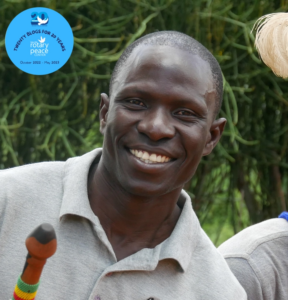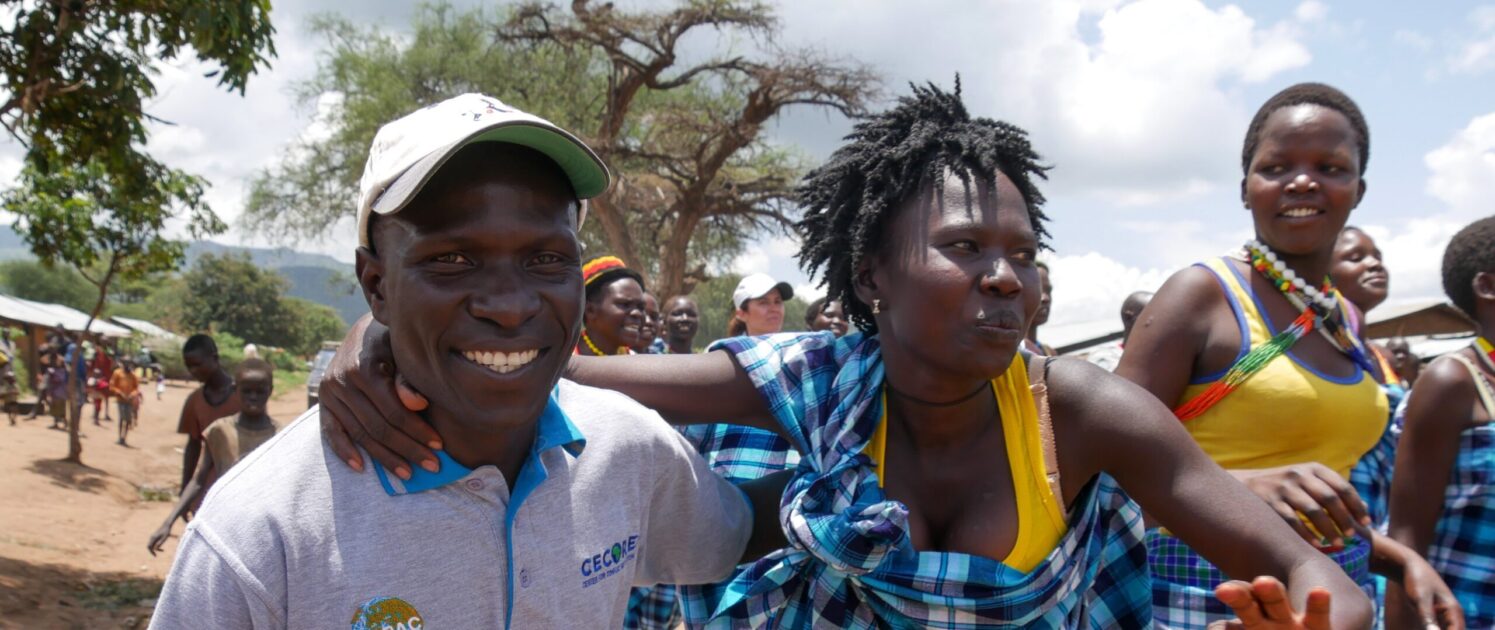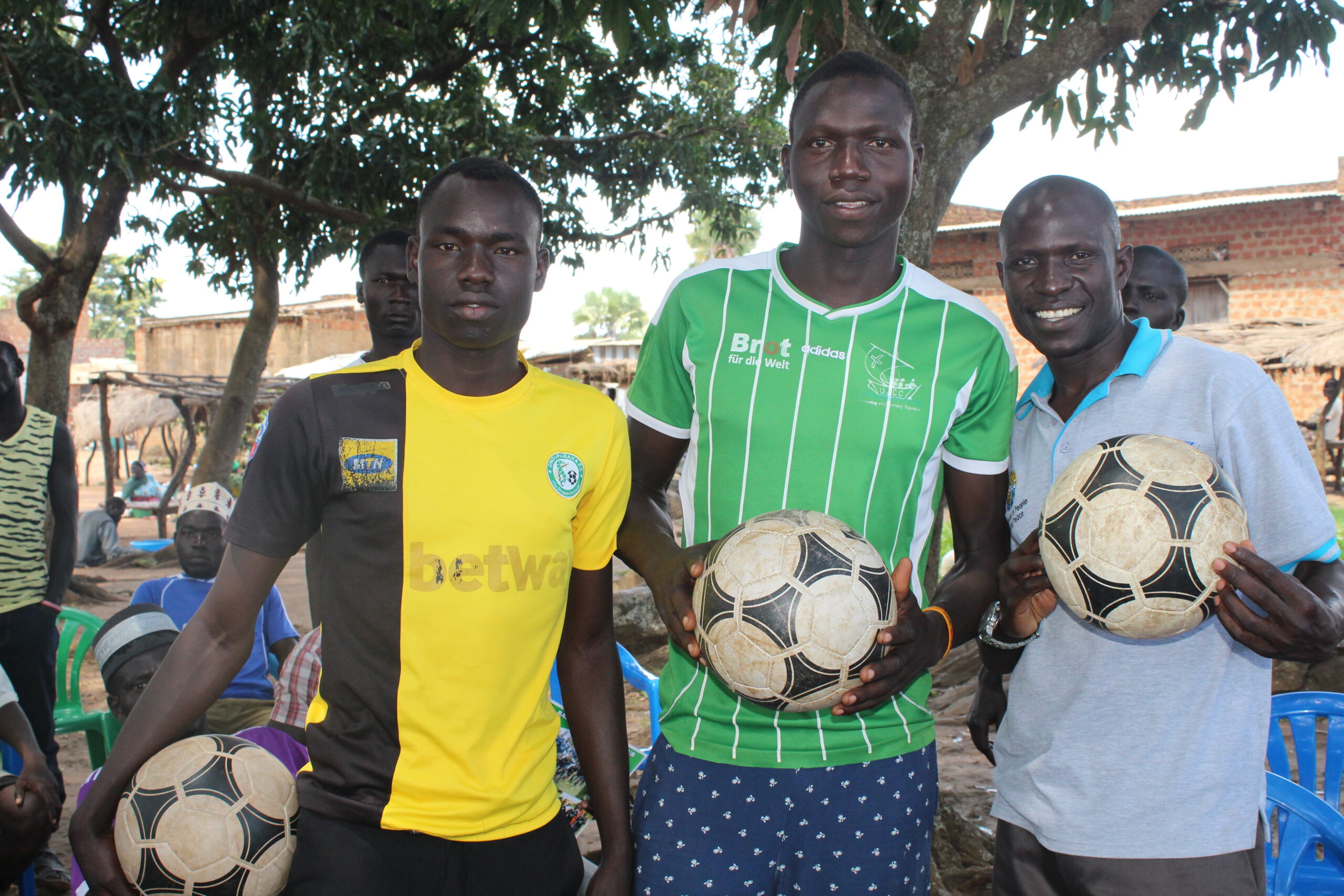Patrick Bwire, Class 15 (2016-2018)
Twenty Blogs for 20 Years
Patrick Bwire joined the Master’s in International Development Policy (MIDP) program at Duke University in 2016 to enhance his skills in peacebuilding and conflict-sensitive natural resource management for the benefit of his country, Uganda. After graduation, Patrick returned to Uganda to serve as the GPPAC’s (Global Partnership for the Prevention of Armed Conflict) Regional Liaison Officer at the Center for Conflict Resolution (CECORE), specializing in addressing conflicts over land management and supporting youth empowerment. He is currently in the process of establishing a multi-purpose learning and skills development center called Namayingo Community Center in his rural district in Uganda and has been called a “champion of peace” and “a voice for the marginalized” by the organization he works for.
 Memory of My Time as a Peace Fellow
Memory of My Time as a Peace Fellow
It has been more than four years now since I completed my fellowship at the Duke-UNC Rotary Peace Center. However, the memories of my time with other Peace Fellows as well as other students, lecturers, Rotarians, my host family, and many more are still so fresh in my mind. The lessons learned and the sharing, fun, and joy we had together was just so amazing. I am probably able to keep these memories fresh because I regularly scan through several pictures from that time and I interact with a range of professional connections I made as a Rotary Peace Fellow on a daily basis.
The Work I Have Been Doing Since
Since I completed my fellowship in 2018, I have been serving as the GPPAC (Global Partnership for the Prevention of Armed Conflict) Regional Liaison Officer – Eastern and Central Africa regional network at Center for Conflict Resolution (CECORE) in Uganda. The peacebuilding and networking skills I learned during my fellowship have come in handy as I work in a large and complex region which is conflict-prone and characterized by multiple cycles of violence.
My work has revolved around regional coordination, peacebuilding, conflict transformation, youth empowerment, and addressing conflicts over land.
I have also been leading the implementation of a project popularly referred to as the Peace Champions Project in fragile and post-conflict communities aimed at preventing youth re-radicalization – an initiative that is appreciated as a model project for the transformation of youth.
Building on my master’s thesis at Duke on land conflicts and my AFE experience, I have been instrumental in addressing similar conflicts in Uganda, as land is one of the key and growing drivers of conflict in the country. My direct interventions have included building the capacity of actors on land conflict mediation and developing a land mediation guide in collaboration with GIZ and the government ministry in charge of lands.
I also serve as a National Coordinator for the Climate Change and Conflict nexus pilot project – a UNDP-supported initiative aimed at ensuring that those who are most affected by the impact of climate change have ‘’the required prevention, preparedness and response capacity; and that local communities develop their own methods to respond to climate security risks that are unique to their own contexts and can meaningfully inform national, regional, and international policy and programming.”
At the core of my work has been localisation of SDG16+ with a pilot project in the Kaabong district in the Karamoja region of northeastern Uganda. My work on SDG localisation was largely informed by the June 2020 national review of Uganda’s progress on SDG16+ that I led ahead of the UN High Level Political Forum 2020 and Uganda’s Voluntary National Review 2020. This work has enabled me to contribute significantly to other global initiatives as well, such as the development of the global CSO tool kit on SDG16+ where I served as one of the authors and as a member of the advisory team. I have continued to use my knowledge to raise awareness through spaces like podcasts, among which I have been referred to as a voice of the marginalized.
I am also completing a Conflict Management Training for Peacekeepers as a TOT Master Trainer under the USIP civilian peacekeeping program. I learned about this job opportunity through the Duke-UNC Rotary Peace Center.
To further work towards my personal mission (“To Aspire, Inspire and Conspire for Peace and Development), in early 2022, I started a process of establishing a multi-purpose learning and skills development center in my rural district called Namayingo Community Center, which teaches various skills to empower and transform vulnerable youth, women, and communities.
The Impact of the Fellowship on my Professional Achievements and Me Personally
The Rotary Peace Fellowship has been a life-changing experience in my professional and personal life. The Fellowship granted me a great stepping-stone in this journey. Today, I feel happy every time I am able to apply the peace-building skills I obtained from the Fellowship to transform the lives of communities.
In the field of peace-building, I am commonly referred to as a champion of peace in Uganda. Before my fellowship, I had a passion for peace and had gained pieces of field experience while managing peace-building projects. But getting the skills the fellowship offers was key in advancing my dream. At the end of my fellowship, I not only had the passion but also practical experience and the right skills to apply in my field. I apply the skills I acquired in several ways, from participating in trainings, consultancies, research to developing policy briefs and recommendations, and more. For example, such skills were key in the national review study that I led in 2020 on Uganda’s progress on SDG16+ that I referred to above.
At a personal level, the fellowship provided me with an opportunity to connect with incredible, friendly, and amazing people across the world with whom I share professional and personal experiences. Today, I feel so proud to be a champion of peace, I feel so proud to be a Rotarian, I feel so proud to be a Paul Harris Fellow – because of the opportunity the Rotary Peace Fellowship granted me.

